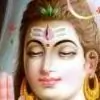1: do u have 330 million Hindu gods?
There is one supreme God that cannot be fully known or understood.
Hindus are encouraged to relate to God in the way that suits them best, like worshipping many deities who are believed to be manifestations of God. The trimurti or three main deities are Brahma, the creator; Vishnu, the preserver; and Shiva, the destroyer. That's why Hinduism is often thought of as polytheistic. It is not.
But there's debate on the proper terminology for Hinduism. Some call it a monistic religion, derived from the belief that everything in the universe is part of one substance or nature. Some, including Shukla, say Hindusim is henotheistic, which is the worship of one god without denying the existence of other gods. Others, say it is monotheistic.
Hindus worship a reminder of God.
No Hindu will say he or she is worshipping an idol. Instead, Hindus believe a physical representation of God - in the form of an idol - helps them focus on an aspect of prayer or meditation. For instance, a person who has just opened up a new business may worship Ganesh, the elephant god who represents success.
3: u ppl worship cows, rite?
Hindus do not pray to cows but they do regard all creation and all life as sacred.
Hindus believe every living thing has a soul. It is true, however, that cows hold a special place in Hindu society. That's why Hindus refrain from eating beef. Cows are seen as gentle, maternal figures that are providers of milk and other forms of sustenance. They are honored for their value.
4: does ur religion supports a discriminatory caste system?
Caste discrimination is rooted not in religion but culture.
Caste was an ancient system of occupational class delineated in Hindu texts that over the years developed into a rigid social hierarchy. The lowest castes, or untouchables, were marginalized and faced persecution. But many modern Hindus have argued that caste-based discrimination is not intrinsic to Hinduism and should not be thought of as religiously sanctioned.
5)is Bhagavad Gita like the Bible?
There is not one central, authoritative book in Hinduism.
But Hinduism is rich in scripture with a vast collection of ancient religious writings. Hindus believe god revealed truths to wise men who passed them on for thousands of years through a rich oral tradition. The scriptures include the Vedas, the Upanishads, the Puranas and the bhagvad gita or song of god
Part of the epic tale, Mahabharata, the 700-verse Gita is the world's longest poem and takes the form of a dialog on a battlefield between a prince, Arjuna, and Krishna. It captures the core beliefs of Hinduism but not all Hindus read the Gita.































